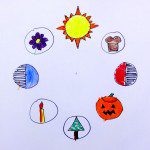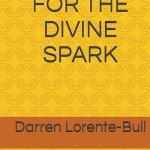(In the first part of this article I discuss some personal experiences around psychedelics, and mention the intense trans-personal mystical experiences called “satori” found through the literature of Zen, which bear at least some resemblance to the psychedelic experience. We’ll now consider the relation of such experiences to “enlightenment”.)
If this sort of experience is the goal of Zen practice, and if the psychedelic experience is something of the same order or type, then it’s not unreasonable to think that psychedelics could be a shortcut to enlightenment.
The problem is that the satori experience isn’t the goal. It is at best a step along the way. As the early Zen teacher Shen Hui wrote, it’s more like a birth than an ending:
All those who want to learn the Tao (Way) must achieve Sudden Enlightenment to be followed by Gradual Cultivation. It is like child-birth, which is a sudden affair, but the child will require a long process of nurture and education before he attains his full bodily and intellectual growth. [Shih, 6-7]
Such experiences may have come to have prominence in Zen due to intra-sect rivalries and political intrigues in China going back to 732. Not 1732 — 732. So it’s an old question! There was a rivalry between the “sudden enlightenment” doctrine that held that a shattering mystical experience was necessary and a “gradual cultivation” school that downplayed such experiences. The “sudden enlightenment” gang — of which Shen Hui was a leader and perhaps the prime instigator — got on the Emperor’s good side and so achieved prominence; they might even have rewritten history to create the legend of the Sixth Patriarch, Hui Neng. [Keremidschieff; Shih, 4-12]
To some degree the “gradual cultivation” doctrine was brought back to prominence by Dōgen and the Sōtō school of Zen — the lineage of which Brad is a part — which de-emphasized the satori crisis in favor of “just sitting”, shikantaza. So there is an old and recurring dispute here about how consciousness “should be” transformed, or what counts as a “genuine” transformation.
But while there is some dispute on whether a satori-style mystical experience is necessary, there is agreement between both the “gradual cultivation” and the “sudden enlightenment” schools that it is not sufficient. If we regard the psychedelic experience as something of the same order as the satori experience (and I advance that only as a possibility, not as a certain statement), by itself it is not enough.
This would explain why we do not seem to have millions of LSD-created bodhisattvas walking the streets. There’s a lot of work, a lot of cultivation, necessary both before and after. At best the use of psychedelics could catalyze something. If we stick with Shen Hui’s metaphor of childbirth, maybe such substances could be likened to drugs which induce labor: sometimes useful but definitely a minor part of the process.
But the fact that something doesn’t produce enlightenment, that it isn’t Zen or even isn’t Buddhist, doesn’t mean that it’s bad. And there’s a significant amount of dispute within Buddhism as to what is and isn’t benign.
The Buddha required his monks and nuns to be celibate, but Japanese Zen gave up on that a long time ago. Some forms of Buddhism forbid monastic folks to listen to music[Thera], but they don’t seem to have convinced Brad to trash his record collection or give up playing the bass. In fact Japanese Zen once had a school that featured playing shakuhatchi flute as a form of meditation.[Deeg] The Big B was down on alcohol but I’ve seen offerings of sake left on graves in Buddhist cemeteries — even Zen Buddhist ones — and there are temples in Koyasan that will serve guests beer. (Parts of this post were written over beers in various Baltimore bars and cafes, and I don’t let my Buddhism, such as it is, interfere with my relationship with Dionysus.)
Brad makes reference to the fifth precept, but that has been interpreted and translated in a number of different ways. Here’s one:
“‘All arahants [perfected persons], for as long as life lasts, have given up the taking of liquors and intoxicants, of that which intoxicates, causing carelessness. They are far from intoxicants.’
“All of you have given up the taking of liquors and intoxicants. You abstain from drink which causes carelessness. For all of this day and night, in this manner, you will be known as having followed the arahants, and the Uposatha will have been observed by you. This is the fifth factor of the Uposatha.[Thera]
The Uposatha is a special day of observance, and in this instance the Buddha was speaking to laypeople who were taking on the rules of monastics for the day.
It’s not my intent to rules-lawyer here and find loopholes, but the question of what is an “intoxicant” that causes “carelessness” here is a substantial one. In the most strict sense, coffee, chocolate, and tea are “intoxicants” that cause an alteration in the nervous system. I can imagine a Buddhist giving up booze, coffee, even chocolate, but tea? That’s so connected with Zen that there’s a legend about the first tea plant springing from Bodhidharma’s eyelids.
This formulation of the precepts is the same one that includes the ban on music, and also includes prohibitions on sexual intercourse, eating in the evenings, and sleeping on high beds. So if we’re taking them as strictly and literally almost all of us are in trouble.
I think the precepts are best understood as suggestions towards a way of life that is conducive to spiritual practice. As I’ve written before, they seem to come down at base to two excellent pieces of advice:
1. Don’t make trouble.
2. Don’t settle for cheap thrills.
Killing, stealing, and lying tend to stir up a lot of trouble and make it hard to find a peaceful place to sit and meditate. And sex, drugs, rock and roll, and physical luxuries like opulent beds or excessive food can be short-term pleasures that distract from long-term goals of personal development — and may even have negative consequences like pregnancy, STDs, hangovers, tinnitus, backaches, and obesity.
But most of us understand that in spite of this potential for abuse, sex and music and a good meal and a comfy bed can be fine things in the proper times and proper balance. They can even be part of our personal development: sex can teach us to share intimacy with people, music can join players and listeners in trans-personal aesthetic experiences of delight. Preparing a meal for others can be such a strong path to enlightenment that Dōgen wrote a famous book about it.
It’s true that a lot of people use psychedelics as nothing more than cheap thrills. And a handful of people use them in a grossly irresponsible manner and end up making a lot of trouble. But I think they deserve the same understanding as those other things that can be potential “cheap thrills” but can also be pleasant experiences approached in a non-grasping manner, maybe even useful tools for personal growth — and maybe, just maybe, sometimes, with a lot of work before and after, might play a role in helping change one’s mind towards enlightenment.
References:
Deeg, Max (2007), Komuso and “Shakuhachi-Zen”: From Historical Legitimation to the Spiritualisation of a Buddhist Denomination in the Edo Period, Japanese Religion 32 (1-2), 7-38 <https://web.archive.org/web/20130408103143/http://www.japanese-religions.jp/publications/assets/JR32_a_Deeg.pdf>
Griffiths, Roland R. et al. “Mystical-Type Experiences Occasioned by Psilocybin Mediate the Attribution of Personal Meaning and Spiritual Significance 14 Months Later.” Journal of psychopharmacology (Oxford, England) 22.6 (2008): 621–632. PMC. http://www.ncbi.nlm.nih.gov/pmc/articles/PMC3050654/
Keremidschieff, Vladimir. “Legends in Ch’an: the Northern/Southern Schools Split, Hui-neng and the Platform Sutra.” thezensite.com. <http://www.thezensite.com/ZenEssays/HistoricalZen/Legends_in_Chan.pdf>
Shih, Hu. “Ch’an (Zen) Buddhism in China: Its History and Method” Philosophy East and West 3.1 (January, 1953): 3-24 <http://ccbs.ntu.edu.tw/FULLTEXT/JR-PHIL/ew87728.htm>
Thera, Ñanavara and Bhikkhu Kantasilo (trans.) Uposatha Sutta: The Uposatha Observance (Anguttara Nikaya 8.41). 1996 <http://www.accesstoinsight.org/tipitaka/an/an08/an08.041.vaka.html>
Warner, Brad. Hardcore Zen. Boston: Wisdom Publications, 2003.
Warner, Brad. “Why I Don’t Do Psychedelic Drugs”. Hardcore Zen (blog). 22 Jul 2015. https://hardcorezen.info/why-i-dont-do-psychedelic-drugs/3759
You can keep up with “The Zen Pagan” by subscribing via RSS or e-mail.
If you do Facebook, you might choose to join a group on “Zen Paganism” I’ve set up there. And don’t forget to “like” Patheos Pagan and/or The Zen Pagan over there, too.
If you’re local to Baltimore, come see me play music in Canton on Saturday, August 1!

















